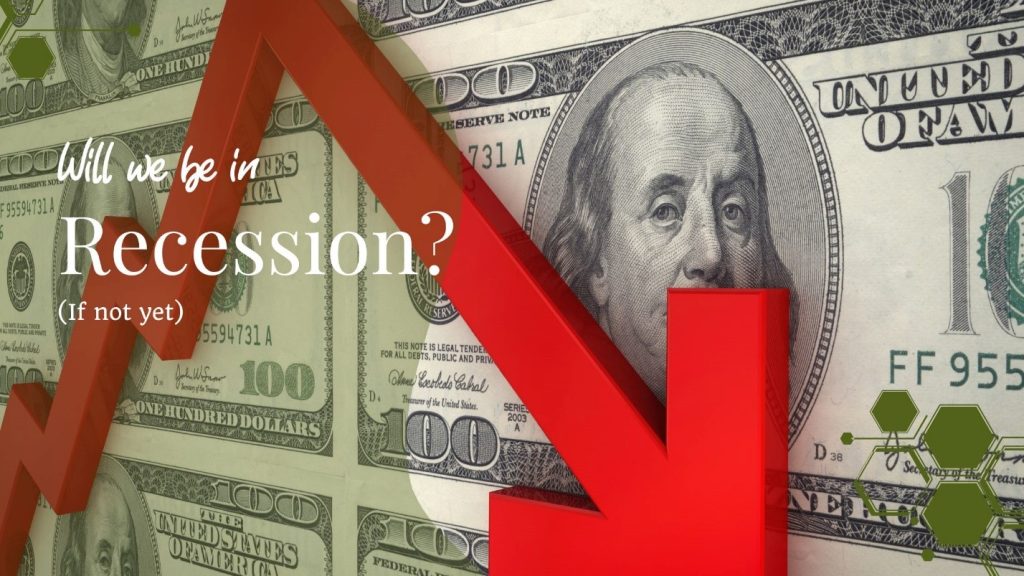By this time, you would have planned out your 2023; more hopeful than ever that things will turn around and you’ll have items checked off of your bucket list. The same hope you had, same time in 2019. Many people and businesses, for three years, have hoped for a better year, but were answered by tightly shut doors, slammed right in front of their faces.
The following year purveys a sense of déjà vu as we may yet again have to make hard trade-offs with an impending recession.

Experts offer conflicting views. On one hand, some claim that the U.S. has been in a recession since summer of 2022, based on the general definition which states that recession sets in after two consecutive quarters of negative gross domestic product (GDP).
Meanwhile, such is not the case if reference is made on the definition provided by the National Bureau of Economic Research (NBER), whose view is that there must be “a significant decline in economic activity that is spread across the economy and that lasts more than a few months” for recession to be declared.
Nonetheless, existing economic concerns like higher borrowing rates and staggering inflation, coupled with the declining revenue and profits of American corporations amid the economic crises in other parts of the world, will likely cause a recession by 2023.

Despite the impending recession, the government is positive that it will be relatively mild, as employers may be more inclined to retain their workforce, considering that they’ve struggled with the massive lay-offs during the pandemic. If so, this may be one less factor off of the equation that further slumps consumer spending.
In fact, the labor market remains robust with unemployment rates recovering to their pre-pandemic levels and employers adding 261,000 in October 2022. The Job Openings and Labor Turnover Survey (JOLTS) in September revealed that there are nearly 11 million job openings, equating to two job openings for every person looking for work.
Consequently, HR plays a vital role in containing the economic downturn and as such, should plan ahead to “recession-proof” their policies and strategies.
Optimizing HR During Recession

Cost-cutting is the main thrust of a recession and everything else follows: layoffs, hiring freezes, leaner benefits, and more. Although some of these measures are necessary to curb spending, organizations need to look at other ways to be cost-efficient like investing in workflow automation. This may be affected in marketing, accounting, supply chain, and HR, among others.
Digital transformation is not a novel concept. In fact, many companies have been working towards the digitization and automation of their processes. Nevertheless, it is still hounded by the misconception that it is expensive when, on the contrary, it can help save money on administrative labor and eliminate costly errors.
Aside from this, automation can boost productivity and quality of work, as it takes back time lost to tedious, repetitive tasks that eat up an employee or team’s focus from other crucial areas like planning and strategy.
Lastly, automation can help prepare your organization for potential understaffing, due to layoffs and hiring freezes.

Recession forces you to make hard decisions like downsizing your organization.
According to Forbes, layoffs will not be evenly spread across all industries. Interest-sensitive sectors, such as construction, business capital goods, and big-ticket consumer products, may take a more massive blow.
If you’re part of that sector (or even if you’re not), you can take this opportunity to “clean house” and improve your workforce.
An early review of your workforce can help you plan ahead for a potential downsizing. When doing so, take the following into consideration:
• Point out redundancies.
• Identify people who pull down the team’s productivity level.
• Identify the top performers or “keepers.”
• Explore reorganization.

HR decisions, particularly those made in times of an economic crisis, must be effectively communicated to all employees. Transparency is essential, especially when the information concerns the fate of employees, so they can have ample time to prepare and consider their options.
As early as now, you should encourage managers to talk to underperformers so they can communicate expectations, set goals, and offer options, solutions, and opportunities for growth.

If push comes to shove, you may have to adopt a leaner compensation and benefits plan for your employees. This can make or break employee retention so you must do it right.
The good news is, employees are not fixated on the value but on what is included in the package. Data shows that, workers consider the following items as must-haves:
• Health insurance (79%)
• 401K or other retirement plan (79%)
• Dental insurance (72%)
• Disability insurance (72%)
• Paid leave (71%)
• Vision insurance (70%)
• Life insurance (63%)
• Health savings account (48%)
• Flex spending account (45%)
• Financial wellness (41%)
• Legal services (34%)
Find out which benefits matter to your employees by conducting a pulse survey, then curate your package inclusions based on the results.
The Bottom Line:
Labor stands in the middle of the tug-and-pull of inflation. It affects factors like purchasing power and corporate profits, as much as it is impacted by them.
Whether we’re headed straight to recession or not, it’s undisputable that the U.S. economy, as it is, is already unstable and can make a dip for the worse any time. Amid this, HR must remain steadfast in formulating policies and strategies, and adopting practices that can survive and thrive in the current economic climate.
We all have roles to play in combatting this crisis, and ours is to help you optimize your HR for the best results.

